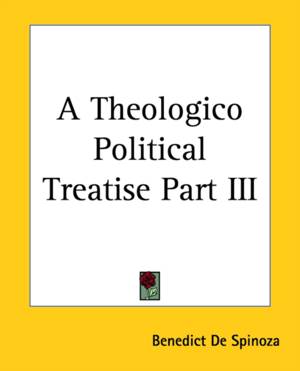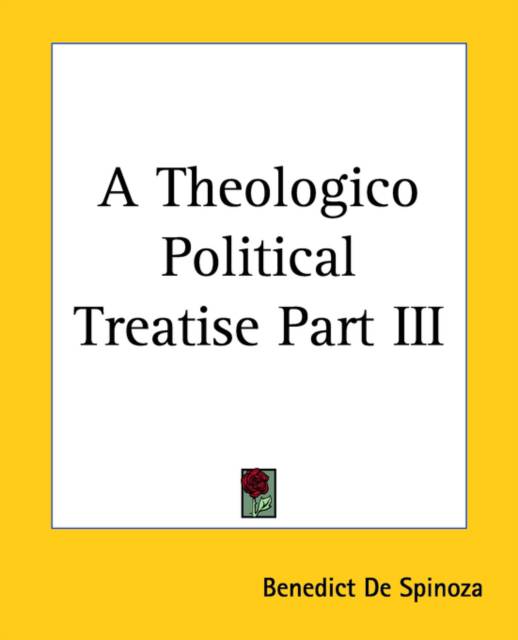
- Afhalen na 1 uur in een winkel met voorraad
- Gratis thuislevering in België vanaf € 30
- Ruim aanbod met 7 miljoen producten
- Afhalen na 1 uur in een winkel met voorraad
- Gratis thuislevering in België vanaf € 30
- Ruim aanbod met 7 miljoen producten
Zoeken
Omschrijving
A Theologico Political Treatise V3 is a philosophical work written by the Dutch philosopher Benedict de Spinoza. The book is divided into two parts, with the first section focusing on the nature of God, and the second section discussing political theory. In the first part of the book, Spinoza argues that God is not a personal being or a supernatural entity, but rather a natural force that governs the universe. He also critiques traditional religious beliefs and practices, arguing that they are often based on superstition and fear rather than reason and evidence.The second part of the book deals with political theory, and Spinoza argues for a democratic system of government that is based on reason and justice rather than tradition or the will of the ruler. He also discusses the role of religion in politics, arguing that it should be separate from the state and that individuals should be free to practice their own beliefs without interference from the government.Overall, A Theologico Political Treatise V3 is a complex and thought-provoking work that challenges traditional religious and political beliefs and offers a new perspective on the nature of God and the role of government in society.No reader of the New Testament can doubt that the Apostles were prophets; but as a prophet does not always speak by revelation, but only, at rare intervals, as we showed at the end of Chap. I., we may fairly inquire whether the Apostles wrote their Epistles as prophets, by revelation and express mandate, as Moses, Jeremiah, and others did, or whether only as private individuals or teachers, especially as Paul, in Corinthians xiv:6, mentions two sorts of preaching.This scarce antiquarian book is a facsimile reprint of the old original and may contain some imperfections such as library marks and notations. Because we believe this work is culturally important, we have made it available as part of our commitment for protecting, preserving, and promoting the world's literature in affordable, high quality, modern editions, that are true to their original work.
Specificaties
Betrokkenen
- Auteur(s):
- Uitgeverij:
Inhoud
- Aantal bladzijden:
- 48
- Taal:
- Engels
Eigenschappen
- Productcode (EAN):
- 9781419103698
- Verschijningsdatum:
- 17/06/2004
- Uitvoering:
- Paperback
- Formaat:
- Trade paperback (VS)
- Afmetingen:
- 190 mm x 235 mm
- Gewicht:
- 99 g

Alleen bij Standaard Boekhandel
+ 30 punten op je klantenkaart van Standaard Boekhandel
Beoordelingen
We publiceren alleen reviews die voldoen aan de voorwaarden voor reviews. Bekijk onze voorwaarden voor reviews.








